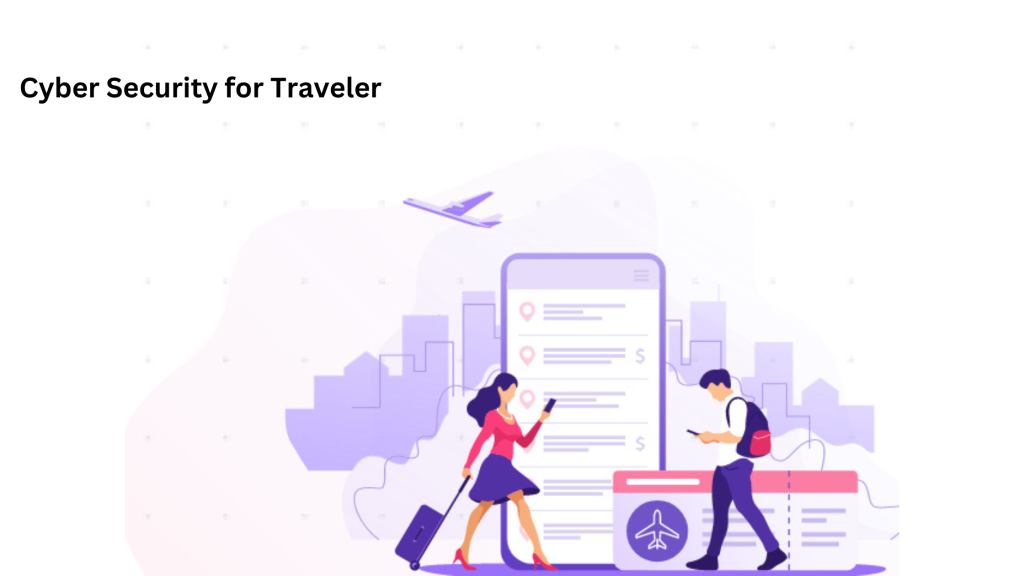
Did you know that over 60% of travelers have experienced some form of cyberattack while abroad?
When you’re traveling, it’s easy to get caught up in the excitement and forget about the potential cybersecurity risks that exist. But with the increasing reliance on technology and the growing threat of cybercrime, it’s more important than ever to take steps to protect yourself and your devices while traveling.
In this article, we will provide you with valuable tips and strategies to help you stay secure while abroad.
From securing your devices before you leave to using secure internet connections and managing your passwords, we will cover all the essential aspects of cybersecurity for travelers.

So, whether you’re traveling for business or pleasure, make sure you read on to learn how to safeguard your personal information and ensure a worry-free trip.
Key Takeaways
- Travelers should prioritize protecting their personal information and devices while traveling by password protecting and regularly updating their devices, securing them before travel, and regularly backing up their data.
- Using Virtual Private Networks (VPNs) is important for data protection, as they encrypt internet connections and protect data. Travelers should avoid connecting to unsecured public Wi-Fi networks and use VPNs to ensure online privacy and security.
- Strong and unique passwords, along with two-factor authentication, are crucial for cybersecurity. Travelers should use strong and unique passwords for all accounts and enable two-factor authentication for added security.
- Travelers should be cautious when downloading apps, use official app stores, recognize phishing attempts, and be cautious of scams and social engineering tactics while traveling. They should also protect personal information by securing mobile apps and reviewing and managing app permissions.
Introduction
When you’re traveling abroad, it’s crucial to prioritize cybersecurity to ensure your personal information stays safe and secure. Cybersecurity for travelers is of utmost importance in this digital age where we are constantly connected.
One of the key aspects to consider is the use of secure internet connections. It is recommended to avoid public Wi-Fi networks as they pose significant risks to your data. Hackers can easily intercept your information on these networks, potentially leading to identity theft or financial fraud. Instead, opt for a virtual private network (VPN) that encrypts your internet connection and safeguards your data.
Additionally, always ensure that your devices are password protected and regularly updated with the latest security patches. By taking these simple precautions, you can greatly reduce the risks associated with cybersecurity while traveling abroad.

Understanding the Cybersecurity Risks When Traveling
When traveling, it’s important to understand the cybersecurity risks you may face.
One major vulnerability is using public Wi-Fi, which can expose your personal information to hackers.
Additionally, tourists are often targeted by cyberattacks, as they may be seen as easy targets.
The Vulnerabilities of Using Public Wi-Fi
Using public Wi-Fi networks can leave you vulnerable to hackers and put your personal information at risk. When you connect to a public Wi-Fi network, you are essentially sharing the same network with strangers, making it easier for hackers to intercept your data. This is a real concern for travelers, as hackers can easily set up fake Wi-Fi hotspots to trick unsuspecting users. Once connected, hackers can intercept your online activities, steal your passwords, and gain access to your sensitive information. To protect yourself, it is recommended to use a Virtual Private Network (VPN) when connecting to public Wi-Fi networks. A VPN encrypts your internet traffic, making it difficult for hackers to decipher your data. Additionally, it is important to avoid accessing sensitive information, such as online banking or email accounts, when connected to public Wi-Fi. Stay vigilant and prioritize your online security while traveling.
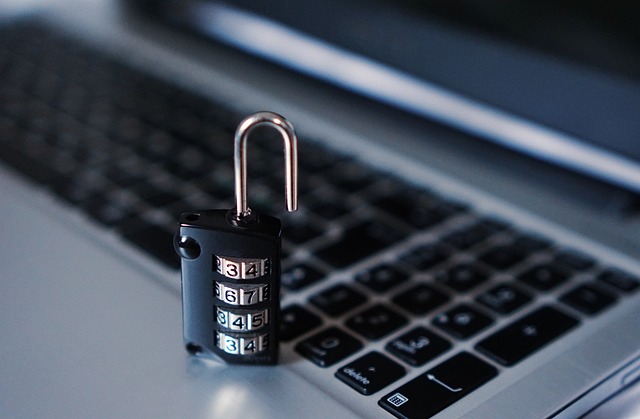
Targeted Cyberattacks on Tourists
As a tourist, it’s important to be aware of targeted cyberattacks that can happen to you. Cybersecurity issues aren’t limited to business travelers alone. Tourists are also at risk and can be targeted by cybercriminals looking to exploit their vulnerability.
These attacks can come in various forms, including phishing emails, fake Wi-Fi hotspots, or even physical theft of devices. It’s crucial to stay vigilant and take necessary precautions to protect your personal and sensitive information.
Before traveling, it’s recommended to research cybersecurity organizations that provide tips and resources specifically for tourists. They can offer valuable advice on securing your devices, using secure networks, and avoiding falling victim to targeted cyberattacks.
By being proactive and informed, you can significantly reduce the risk of becoming a victim.

Securing Devices Before Travel
Before traveling, it’s important to secure your devices.
One way to do this is by updating the software and operating systems. This will ensure that your devices have the latest security patches and protections against cyber threats.
Additionally, don’t forget to back up your data before you go. This will safeguard important files and documents in case of loss or theft.
Updating Software and Operating Systems
To stay ahead of potential cyber threats while traveling, it is important to regularly update your software and operating systems. By keeping your devices up to date with the latest security patches, you can ensure their protection against hackers and malware. Updating your software and operating systems helps to close any known vulnerabilities that cybercriminals can exploit. These updates often include patches that fix security flaws and improve the overall performance of your devices.

Make it a habit to check for updates regularly, as new vulnerabilities are constantly being discovered. Set your devices to automatically update software and operating systems whenever possible, or manually check for updates before and during your trip.
By staying proactive and keeping your devices updated, you can significantly reduce the risk of falling victim to cyber threats while abroad.
Backing Up Data
Don’t forget to create a digital safety net by backing up your important files, like a safety net catching you if you fall.
When you are traveling, it’s crucial to protect your data from loss or theft. One of the best ways to do this is by regularly backing up your data.

By creating copies of your important files and storing them in a secure location, you can ensure that even if your device is lost or stolen, you won’t lose all your valuable information.
There are various options for backing up your data, such as using external hard drives, cloud storage services, or virtual private network providers. Make sure to choose a method that suits your needs and provides a high level of security.
With regular backups, you can enjoy your travels with peace of mind, knowing that your important data is safe and sound.
Using Secure Internet Connections
When traveling, it’s important to use secure internet connections to protect your personal information. One way to do this is to avoid connecting to unsecured public Wi-Fi networks, as they can be easily hacked.

Instead, consider using a Virtual Private Network (VPN) to encrypt your internet traffic and keep your data safe from prying eyes.
Avoiding Unsecured Public Wi-Fi
Protect yourself from potential cyber threats by being cautious when connecting to unsecured public Wi-Fi networks while traveling. It’s crucial to prioritize your cybersecurity when on the go.
Unsecured public Wi-Fi networks pose a significant risk to your personal information and sensitive data. Avoid connecting to these networks as they are often unencrypted and vulnerable to hackers.
Instead, opt for secure networks that require a password or use a virtual private network (VPN) to encrypt your connection. By doing so, you can ensure that your data remains protected and that you stay cyber safe when traveling.

Remember, being proactive in avoiding unsecured public Wi-Fi is a vital step in keeping yourself cyber secure while traveling.
Using Virtual Private Networks (VPNs)
Using a VPN is like having a secret tunnel that shields your internet activity from prying eyes, ensuring your online privacy is maintained.
When it comes to staying cyber secure while traveling, using virtual private networks (VPNs) is essential.
Public Wi-Fi networks are notorious for being unsecured, making it easy for hackers to intercept your data. By using a VPN, you create a secure connection between your device and the internet, encrypting all your internet traffic. This means that even if someone manages to intercept your data, they won’t be able to decipher it.

VPNs also allow you to access geo-restricted content and websites that may be blocked in the country you’re visiting.
So, make sure to always use a VPN when traveling to ensure your online safety and privacy.
Secure Password Management
When it comes to secure password management, it’s crucial to use strong and unique passwords for all your accounts.
This means avoiding common and easily guessable passwords, and instead using a combination of uppercase and lowercase letters, numbers, and symbols.

Additionally, enabling two-factor authentication (2FA) adds an extra layer of security by requiring a second form of verification, such as a code sent to your phone, in addition to your password.
Using Strong and Unique Passwords
Don’t underestimate the power of strong and unique passwords while traveling abroad – they can be your digital bodyguards!
When it comes to cybersecurity, using strong and unique passwords is crucial to protect your personal information from cyber threats. Phishing awareness is essential, as hackers often use deceptive tactics to trick travelers into revealing their passwords.
To stay cyber safe when traveling, make sure to create passwords that are at least 12 characters long and include a mix of uppercase and lowercase letters, numbers, and special characters. Avoid using common phrases or personal information that can be easily guessed.
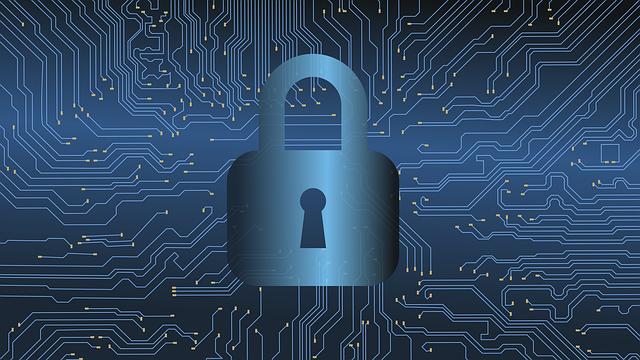
Additionally, be cautious when downloading apps and only use official app stores to reduce the risk of downloading malicious software.
By following these tips, you can strengthen your digital defenses and enjoy a worry-free trip.
Enabling Two-Factor Authentication (2FA)
To add an extra layer of security to your login procedures, you absolutely need to enable Two-Factor Authentication (2FA) – it’s like having a digital fortress protecting your accounts.
Two-Factor Authentication requires you to provide two separate pieces of information to verify your identity. This could be a combination of something you know, like a password, and something you have, like a verification code sent to your phone.
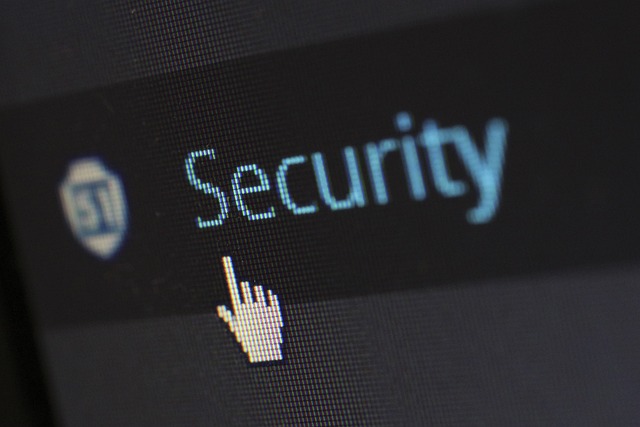
By enabling 2FA, you make it much harder for cybercriminals to gain unauthorized access to your accounts, even if they manage to obtain your password. This is especially crucial when you are traveling, as unfamiliar networks and devices may increase the risk of your accounts being compromised.
Many online services, including social media platforms, email providers, and financial institutions, offer 2FA as an option. Take advantage of this powerful security measure to keep your accounts safe while on the go.
Protecting Sensitive Information
To protect your personal and financial data while traveling, it’s crucial to take necessary precautions.
- Safeguard your sensitive information by using secure internet connections, such as a Virtual Private Network (VPN). Avoid accessing or sharing personal data on public Wi-Fi networks.
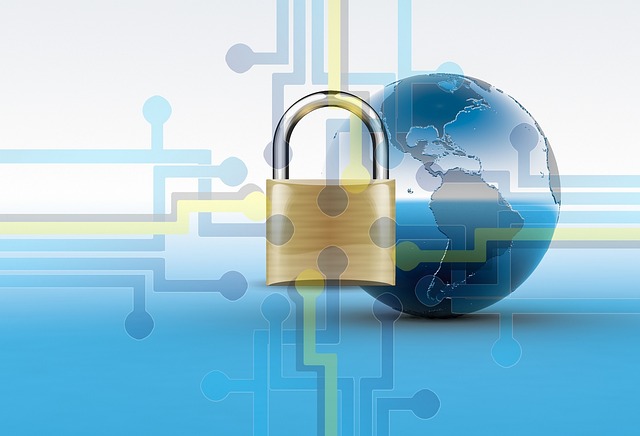
- Be cautious about publicly sharing your travel plans as it can increase the risk of targeted attacks or burglary.
Remember, protecting your sensitive information is essential to ensure a safe and secure travel experience.
Safeguarding Personal and Financial Data
To safeguard personal and financial data while traveling, there are several steps that can be taken:
- Minimize the amount of information stored and shared on devices. Delete unnecessary data, such as old emails, messages, and files.

- Be cautious when connecting to public Wi-Fi networks, as they can be vulnerable to hackers. Avoid accessing sensitive information, such as online banking or shopping, while connected to public Wi-Fi.
- Use a virtual private network (VPN) to encrypt your internet connection and protect your data. This ensures a safer browsing experience.
- Enable two-factor authentication for important accounts, such as email and banking. This adds an extra layer of security by requiring a second form of verification.
- Regularly update your device’s software and apps to ensure you have the latest security patches and bug fixes. This helps protect against potential vulnerabilities.
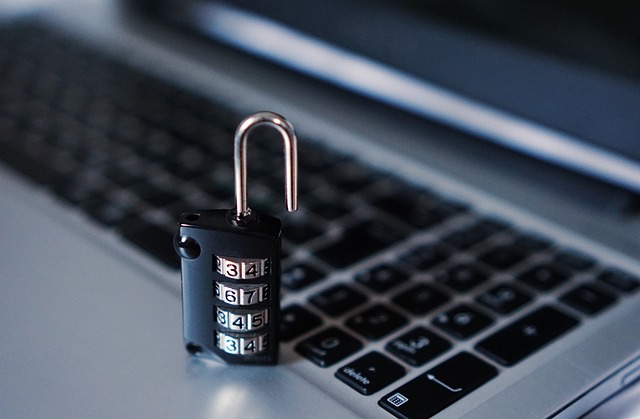
By following these steps, travelers can minimize the risk of their personal and financial data being compromised while abroad.
Avoiding Publicly Sharing Travel Plans
When you’re about to embark on your exciting adventure, it’s best to keep your travel plans under lock and key. Avoid any public sharing that could potentially attract unwanted attention from cybercriminals.
Sharing your travel plans on social media or other public platforms can give cybercriminals valuable information about your whereabouts. This creates opportunities for them to target you and plan attacks such as identity theft, burglary, or even physical harm.
Instead, opt for sharing your travel experiences after you return home. Ensure that you don’t reveal specific dates or locations while you’re still abroad.

By keeping your travel plans private, you can minimize the risk of becoming a target and enjoy a worry-free trip. Remember, it’s better to be safe than sorry when it comes to cybersecurity while traveling.
Phishing and Social Engineering Awareness
In this discussion, you will learn about the importance of recognizing phishing attempts, avoiding scams, and being aware of social engineering tactics.
It is crucial to be able to identify suspicious emails, messages, or phone calls that attempt to trick you into revealing sensitive information.
By staying vigilant and informed, you can protect yourself from falling victim to these types of online threats while traveling.

Recognizing Phishing Attempts
Stay vigilant and easily spot phishing attempts by familiarizing yourself with common red flags in suspicious emails and messages. One of the key indicators of a phishing email is poor grammar and spelling errors. Phishers often use language that is overly formal or contains unusual phrases.
Another red flag is the presence of urgent or threatening language, designed to make you act quickly without thinking. Be wary of emails that ask for personal information or login credentials, as legitimate organizations would never ask for this information via email.
Look out for suspicious attachments or links, especially if they come from unknown senders. Hover over links to check the URL before clicking on them.
By being aware of these warning signs, you can protect yourself from falling victim to phishing attacks while traveling abroad.

Avoiding Scams and Social Engineering Tactics
When traveling abroad, it’s important to be cautious and aware of potential scams designed to trick you into giving away personal information or money. One common scam is the ‘helping hand’ approach, where someone offers to assist you with directions, transportation, or other services. While it may seem friendly, be wary of giving out personal information or accepting help from strangers.
Additionally, be cautious of unsolicited phone calls or emails asking for sensitive information. Scammers may pose as banks, government agencies, or even friends and family members. Always verify the legitimacy of the request before providing any information.
By staying vigilant and skeptical, you can protect yourself from falling victim to scams and social engineering tactics while traveling.
Securing Physical Devices
To ensure the security of your physical devices while traveling, there are a few key points to keep in mind.

First, make sure to use device locks and biometric security features, such as passwords, PINs, or fingerprint recognition, to prevent unauthorized access.
Secondly, always keep your devices in sight and avoid leaving them unattended, especially in public places.
Lastly, store your devices in secure locations, such as a locked bag or hotel safe, when you’re not using them to minimize the risk of theft or tampering.
Using Device Locks and Biometric Security
Ensure the security of your devices while traveling by utilizing device locks and biometric security features. These measures provide peace of mind and protect your valuable personal information from potential threats.

Device locks, such as passwords, PINs, or patterns, act as the first line of defense against unauthorized access. It is crucial to set up a strong and unique lock code that is not easily guessable. This will significantly enhance the security of your device.
In addition to device locks, take advantage of biometric security options like fingerprint or facial recognition. These features provide an extra layer of protection, making it incredibly difficult for anyone other than yourself to unlock your device. Enabling these security measures on all your devices, including smartphones, tablets, and laptops, is essential to ensure comprehensive protection.
By utilizing device locks and biometric security features, you can greatly reduce the risk of unauthorized access and keep your personal information safe while traveling.
Keeping Devices in Sight and in Secure Locations
Make sure you always keep your devices within eyesight and store them in secure locations, like a hawk watching over its nest. When you’re traveling, it’s important to be vigilant and not let your guard down.

Always keep your devices in sight, especially when you’re in public places like airports, cafes, or hotels. Never leave your devices unattended, even for a short period of time. If you need to step away, either take your devices with you or secure them in a locked compartment or safe.
Avoid leaving them in plain sight, as this can make them an easy target for thieves. By keeping your devices within your sight and in secure locations, you can minimize the risk of theft and protect your valuable data.
Mobile App Security
When it comes to mobile app security, there are two key points you should keep in mind.
First, always download apps from official sources like the Apple App Store or Google Play Store to minimize the risk of downloading malicious software.

Second, make sure to review and manage app permissions to ensure that you only grant access to the information and features that are necessary for the app to function properly.
By following these two guidelines, you can help protect your mobile device and personal information from potential security threats.
Downloading Apps from Official Sources
To ensure the security of your mobile device while traveling, it’s crucial to download apps only from official sources and avoid third-party app stores or untrusted sources.
When you download apps from official sources, such as the Apple App Store or Google Play Store, you can be more confident that the apps have undergone thorough security checks and are less likely to contain malware or other malicious code. These official sources have strict guidelines and policies that developers must adhere to, ensuring that the apps meet certain security standards.
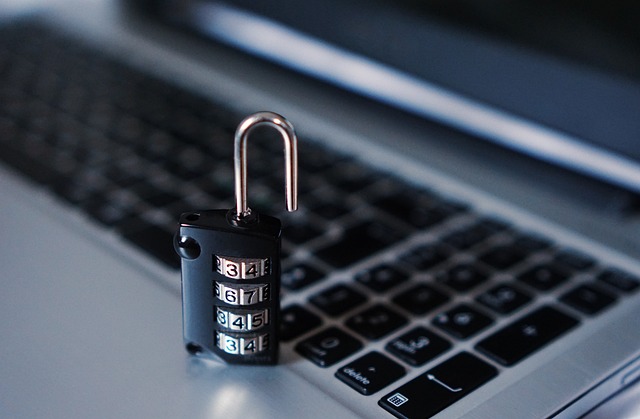
On the other hand, third-party app stores and untrusted sources may not have the same level of scrutiny, making them more susceptible to hosting apps with hidden security risks.
By sticking to official sources, you can significantly reduce the chances of compromising your device’s security while traveling.
Reviewing and Managing App Permissions
Reviewing and managing app permissions is crucial for taking control of the personal data your apps can access. This ensures a safer and more private mobile experience. When you download apps from official sources, it’s important to carefully review the permissions they require. By doing so, you can make informed decisions about which permissions to grant and which to deny.
For example, if a travel app asks for access to your location, contacts, or camera, consider if it’s necessary for its functionality. It’s important to be cautious when granting permissions, as some apps may misuse or sell your personal data.

Regularly reviewing and updating app permissions is essential to ensure that you’re only giving access to the data you’re comfortable sharing. Taking these steps will help protect your personal information while traveling.
Monitoring Financial Transactions
To ensure the security of your financial transactions while traveling, it’s important to:
- Check your bank and credit card statements regularly. By doing so, you can quickly identify any unauthorized charges and take immediate action.
- Set travel notifications with your financial institutions. This will help prevent any unnecessary card blocks or disruptions while you are abroad.

Checking Bank and Credit Card Statements Regularly
Regularly checking your bank and credit card statements is like shining a light into the dark corners of your finances, uncovering any hidden unauthorized transactions.
When you are traveling abroad, it becomes even more crucial to stay vigilant and monitor your financial transactions. By checking your statements regularly, you can quickly identify any suspicious activity and take immediate action.
It is recommended to set up alerts on your accounts, so you receive notifications for any unusual transactions. Additionally, make sure to review your statements carefully, looking for any unfamiliar charges or discrepancies.
If you notice anything suspicious, contact your bank or credit card company immediately to report the unauthorized transaction.

Remember, being proactive and staying on top of your financial statements can help protect you from potential fraud while traveling.
Setting Travel Notifications with Financial Institutions
To ensure that your legitimate transactions are not blocked while you’re away, it is important to proactively notify your financial institutions about your travel plans. Many banks and credit card companies have systems in place to detect unusual activity on your accounts. If they see transactions from a location you haven’t informed them about, they may flag it as suspicious and block your card.
To avoid this inconvenience, it is crucial to set travel notifications with your financial institutions before you leave. Simply call your bank or credit card company and let them know the dates and destinations of your trip. This way, they will have the necessary information to distinguish between legitimate transactions and potential fraud.
Taking this simple step can save you from the frustration and hassle of having your transactions blocked while you’re traveling.

Educating Travel Companions about Cybersecurity
When traveling with a group, it’s important to promote cybersecurity awareness among all members. Make sure to educate your travel companions about the potential risks and how to stay safe while abroad.
Coordinate safe practices during the trip, such as using secure Wi-Fi networks and avoiding suspicious websites or downloads.
Promoting Cybersecurity Awareness Among Travel Group Members
Spreading the word about cybersecurity to your fellow travelers is crucial to keeping everyone safe online while abroad. Promoting cybersecurity awareness among travel group members ensures that everyone understands the risks and takes necessary precautions.
Start by discussing the importance of strong and unique passwords for all their online accounts. Emphasize the need to avoid using public Wi-Fi networks for sensitive activities. Encourage them to enable two-factor authentication on their devices and regularly update their software and apps.

Remind them to be cautious when clicking on unfamiliar links or downloading attachments, as these could be phishing attempts. Lastly, emphasize the importance of backing up their data regularly and being mindful of their social media posts to avoid sharing sensitive information.
By educating and empowering your travel group members, you can collectively enhance your cybersecurity while enjoying your trip.
Coordinating Safe Practices During the Trip
To coordinate safe practices during the trip, it is important to establish clear guidelines and procedures. Remind everyone to update their devices and applications before the trip to minimize the risk of cyber threats. Encourage the use of secure Wi-Fi networks and discourage the use of public or unsecured connections. Emphasize the importance of strong and unique passwords for all accounts and suggest the use of password managers. Regularly remind everyone to be cautious of suspicious emails, links, or requests for personal information. Establish a system for reporting any suspicious activities or incidents promptly. By working together to implement these practices, your travel group can enjoy a secure and worry-free trip.
Responding to Security Incidents During Travel
If you ever find yourself in the unfortunate situation of experiencing a cybersecurity breach while traveling, it’s important to know what steps to take.

Firstly, immediately disconnect any compromised devices from the internet and change all passwords for your accounts.
Secondly, report the incident to the appropriate authorities and your bank if any financial information has been compromised.
Lastly, consider enabling two-factor authentication and regularly monitoring your accounts for any suspicious activity.
What to Do in Case of a Cybersecurity Breach
When faced with a cybersecurity breach while traveling, it’s vital to promptly report the incident to local authorities and seek assistance from the nearest embassy or consulate.

Did you know that according to a survey conducted by the Ponemon Institute, the average cost of a data breach in 2020 was $3.86 million, highlighting the importance of taking immediate action to mitigate the damages?
In case of a cybersecurity breach, the first step is to disconnect from the compromised network and turn off your device’s Wi-Fi and Bluetooth. This will help prevent further access to your personal information.
Next, change all your passwords, starting with your email and online banking accounts. It’s also important to notify your bank or credit card provider about the breach, so they can monitor your accounts for any suspicious activities.
Finally, consider contacting a cybersecurity professional to assess the extent of the breach and provide guidance on securing your devices and data. Remember, acting swiftly can minimize the potential harm caused by a cybersecurity incident while traveling.
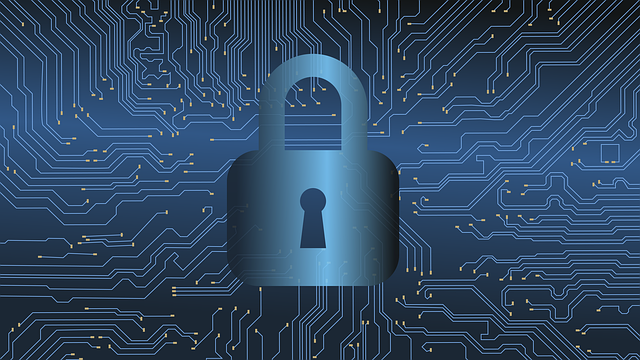
Handling Stolen Devices or Compromised Accounts
Dealing with stolen devices or compromised accounts can be a nightmare, but by taking immediate action and following the right steps, you can regain control and protect your personal information.
If your device is stolen, the first thing you should do is contact the local authorities and file a police report. This will help in case you need to provide evidence for insurance claims or legal purposes.
Next, notify your bank and credit card companies to freeze your accounts and prevent any unauthorized transactions. Change all your passwords, especially for your email and social media accounts, to prevent further access by the thief.
Lastly, enable remote tracking and wiping features on your device, so you can locate it or erase your data remotely if necessary. Remember, acting swiftly is crucial to minimizing potential damage and securing your information.
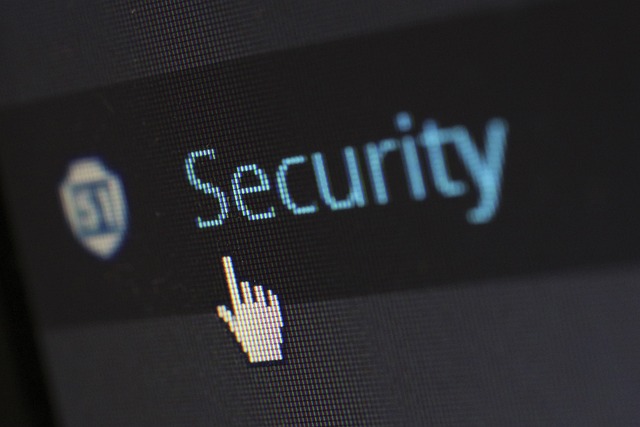
Cybersecurity Precautions for International Travel
When traveling internationally, it’s crucial to understand cybersecurity laws and practices in different countries. This will help you avoid any legal trouble and ensure that you are taking necessary precautions to protect your personal information.
Securing your devices during border crossings is essential to prevent unauthorized access and potential data breaches.
Understanding Cybersecurity Laws and Practices in Different Countries
To better protect yourself while traveling, it’s essential to familiarize yourself with the cybersecurity laws and practices in different countries. Understanding these laws can help you avoid any legal issues and ensure that you can stay secure online.
Some countries may have stricter regulations regarding internet usage, surveillance, and data privacy. For example, in China, the government heavily monitors internet activities, and certain websites and social media platforms are blocked. It’s important to be aware of these restrictions and adjust your online behavior accordingly.
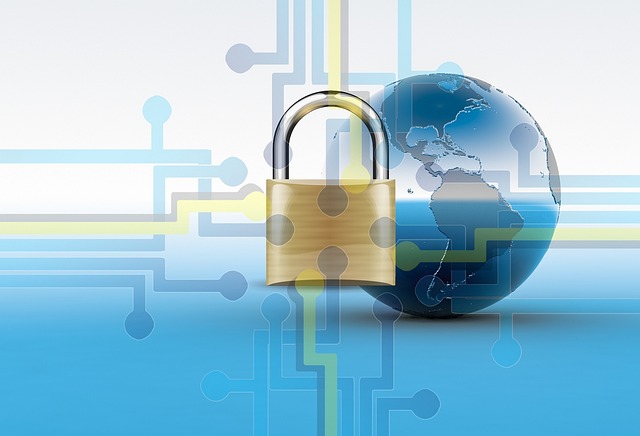
Additionally, some countries may have different cybersecurity practices, such as using two-factor authentication or encrypted messaging apps. By understanding these practices, you can take the necessary precautions to secure your personal information and maintain your privacy while abroad.
Securing Devices During Border Crossings
Securing devices during border crossings is like fortifying your digital fortress before embarking on a technological adventure.
When traveling abroad, it’s crucial to take steps to protect your electronic devices from potential threats. First and foremost, ensure that all your devices have strong, unique passwords. Consider enabling two-factor authentication for an extra layer of security.
Before crossing the border, backup all your important data to a trusted cloud service or an external hard drive. This way, if your device gets lost or confiscated, you won’t lose valuable information.

Additionally, encrypt your devices to safeguard sensitive data from prying eyes. Keep your devices on your person or in your carry-on luggage at all times to minimize the risk of theft.
Lastly, be cautious when connecting to public Wi-Fi networks, as they can be vulnerable to hackers.
By taking these precautions, you can enjoy your travels with peace of mind.
Recap
It is imperative for travelers to remain vigilant and take proactive measures to ensure a secure trip, as cybersecurity threats can pose significant risks while abroad.
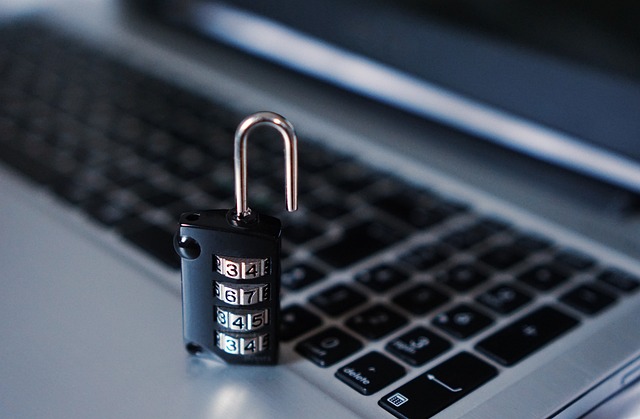
Before embarking on your journey, make sure all your devices are updated with the latest security patches and antivirus software. Enable two-factor authentication for all your accounts to add an extra layer of protection.
Avoid using public Wi-Fi networks, as they are often unsecured and can put your sensitive information at risk. Instead, use a virtual private network (VPN) to encrypt your internet connection.
Be cautious of phishing emails and suspicious links, as they can lead to malware infections or identity theft.
Finally, regularly backup your data and consider using encryption to protect it. By following these tips, you can greatly reduce the chances of falling victim to cyber threats while traveling.

Frequently Asked Questions
Are there any specific cybersecurity risks that travelers should be aware of when using public Wi-Fi networks?
When using public Wi-Fi networks while traveling, you should be aware of specific cybersecurity risks. Hackers can easily intercept your data, so avoid accessing sensitive information and use a virtual private network (VPN) for added protection.
What are some common signs of a phishing email or website, and how can travelers avoid falling victim to them?
Phishing emails and websites are common threats for travelers. Stay vigilant by looking out for suspicious email addresses, generic greetings, and urgent requests for personal information. Don’t click on unknown links or download attachments, and always verify the source before sharing sensitive data.
How can travelers protect their personal information when using mobile apps for banking or shopping while abroad?
To protect your personal information when using mobile apps for banking or shopping while abroad, be cautious of the apps you download, ensure they are from trusted sources, and use secure Wi-Fi connections or a virtual private network (VPN).
Are there any recommended steps for travelers to take if they suspect their devices or accounts have been compromised while traveling?
If you suspect your devices or accounts have been compromised while traveling, take immediate action. Securely disconnect from the internet, change passwords, and contact your bank or service provider for assistance.

Is it necessary to use a virtual private network (VPN) when accessing the internet while abroad, and if so, what are the benefits and how can travelers set one up?
Yes, it is necessary to use a VPN while accessing the internet abroad. Benefits include encryption, anonymity, and protection against hackers. Set up a VPN by downloading a trusted provider’s app and following their instructions.
Conclusion
As you undertake your journey, remember that cybersecurity is the protective armor that shields you from the lurking dangers of the digital world. Just as you carefully lock your suitcase, safeguard your devices with strong passwords and encryption.
Choose your online connections wisely, like selecting the perfect destination. And, like a trusted guide, educate your travel companions about the importance of cybersecurity.
By taking these precautions, you ensure a safe and secure voyage, where your digital footsteps leave no trace for the lurking cyber predators.

Bon voyage!
You might also like to read on these cybersecurity articles on Get Hitch
Cybersecurity Basics: A Beginner’s Guide to Online Safety
The Dark Web Unveiled: Understanding Its Risks and How to Navigate Safely








